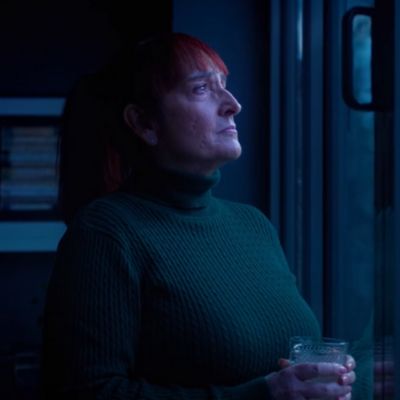
10 Things to Do After the Funeral Is Over
The time preparing for a funeral can be extremely difficult and brings a number of great challenges. Dealing with unexpected funeral costs, sorting through piles of paperwork and organising all the small details, this time can be incredibly overwhelming, while also trying to allow yourself time to grieve. There is plenty of content published on these funeral arranging challenges you might face, but much fewer help resources available to guide you through the days and weeks following the funeral.
Here are ten things to do once the funeral is over.
1. Continue Grieving
The funeral itself can be a monumental stage in the grieving process and often allows loved ones to find some degree of closure. However, the funeral is not the end of the grieving process, just the closing of one phase of grieving.
You should not expect yourself to have stopped grieving the day after. In fact, the stress and chaos of arranging a funeral may have delayed your grieving and you may just be starting to grieve once the funeral is over. Tell yourself that this is okay and is a natural process. It may take days, weeks or even months for the grieving process to end, everyone grieves in their own way and there is no right or wrong way to do so.
2. Surround Yourself with Family and Friends
Ensure to surround yourself with the people you love following the death of a loved-one. After a death, it is natural to value your time with those you cherish, and it is likely that you will not want to spend this time alone. Remember, your family and friends are likely mourning their own loss, and will find great comfort in the time spent with you. It is important for your own wellbeing not to overwhelm yourself with visitors, or feel you have to be the perfect host.
3. The Death Certificate
A formality after the funeral is obtaining the official death certificate. This is not only a useful document for different admin tasks (see Closing Accounts and Notifying Companies), but you may even decide to frame it and hang it on a wall in your home.
4. Closing Accounts and Notifying Companies
The deceased may have all types of arrangements, memberships and bank accounts with different organisations. You will need to use the death certificate to inform these parties about the death so they can close accounts, stop recurring payments and even transfer assets.
You may not know about every bank account or membership the deceased had, so try to think outside the box to keep people informed. Did they have a fishing magazine subscription or even a gym membership? This is the only post-funeral task that is quite urgent, to avoid complications with outstanding payments.
5. Scatter Your Loved One’s Ashes
Did you know that a recent poll has indicated that the UK population prefer to be cremated over being buried and those that prefer cremation want their ashes to be scattered rather than kept? On that note, there is a chance that you will need to follow a funeral with this task.
Choosing a place to scatter them and what to say when scattering ashes doesn’t have to be rushed. Think about their favourite places and what they enjoyed when making these decisions. Once you have decided upon a place to scatter the ashes, consider making the location known by using registries such as The Ashes Register.
6. Consider a Memorial
Framing a death certificate is one way of creating a small memorial within the home and a nice way to be reminded of your loved one every day. You could always go further and create a memorial for the deceased in other ways.
The typical memorial of current times is to have a bench made in their name - and in their favourite spot to encourage others to stop and enjoy a view or landscape.
A slightly smaller memorial option would be to create a memory book of your loved-one. Fill the pages with wonderful memories, photographs and extracts from a condolence book or cards. The creation of the memory book will help you to remember all the most wonderful moments shared with your loved one, it will also help occupy your mind during the grieving period. A memory book will make for a wonderful keepsake in which you will cherish over the years to come.
7. Send Thank You Cards
Another small task after the funeral is to consider sending thank you cards, messages or flowers to the people that were supporting you the most after the death. It is common to send a thank you note to the people who helped you organise the funeral or played a significant role on the day.
8. Make a Donation
The person’s official will may have indicated that a donation is to be made to a certain charity. If you are the executor of the will then you will have the responsibility of ensuring this takes place. Even if it is not in the will, many people choose to make a donation in their loved one’s name.
Whether it be to research a cure for cancer or improve awareness on a topic, a donation in someone’s memory is a beautiful and caring thing to do.
9. Do the Things You Love
It is understandable that you will want to hide from daily life while you grieve and come to terms with your loss, but you should try and make an effort to continue with your hobbies and practice self-care. Taking your mind off the death is not to be confused with not caring or not grieving, but should be encouraged. Do not feel guilty or ashamed for seeking enjoyment, after all, that is all your loved-one would want for you.
10. Get Support and Professional Help
If you are making all the right steps but the grieving process is too much and holding you back, there is absolutely no shame in seeking professionals help. We all grieve in different ways and on different timelines. If you want to get the right support or counselling to help you through this phase of life, then you should do exactly that.
Learn that you are not alone and always grieve in the healthiest way possible for you.
No Need to Rush!
Yes - the list of things to do after the funeral may be as long as it was before the funeral, but the good news is that many of the above things do not have a deadline. Remember to concentrate on yourself while working your way through your post-funeral to-do list.



